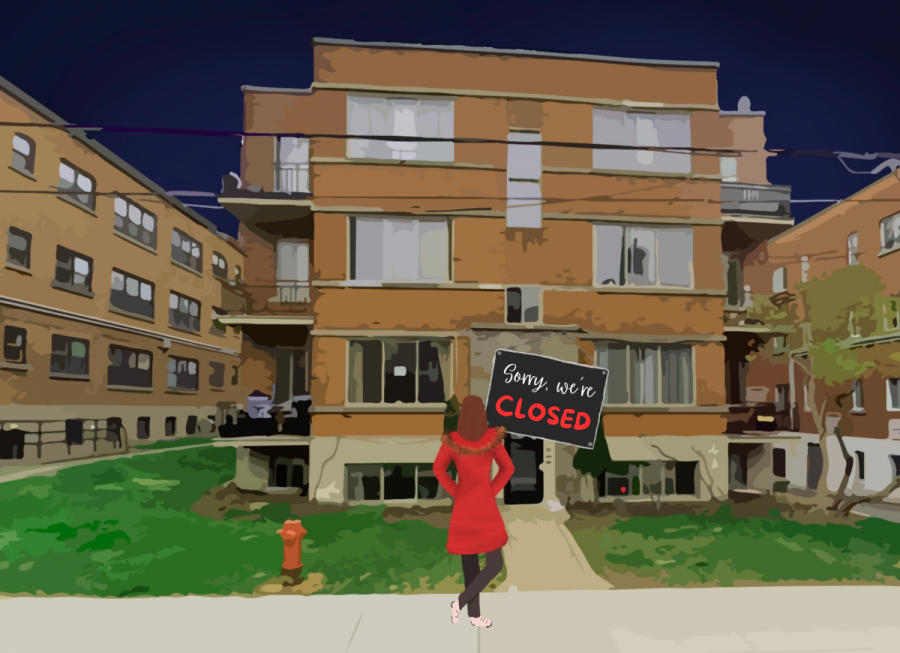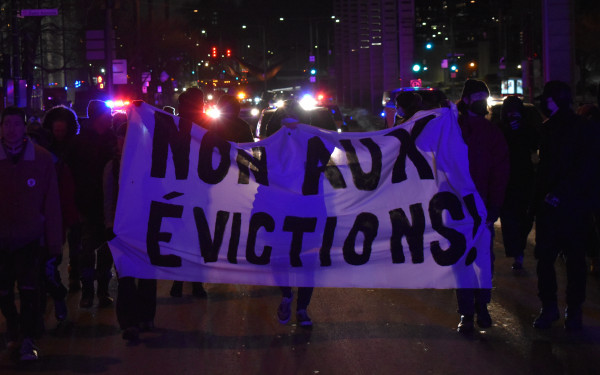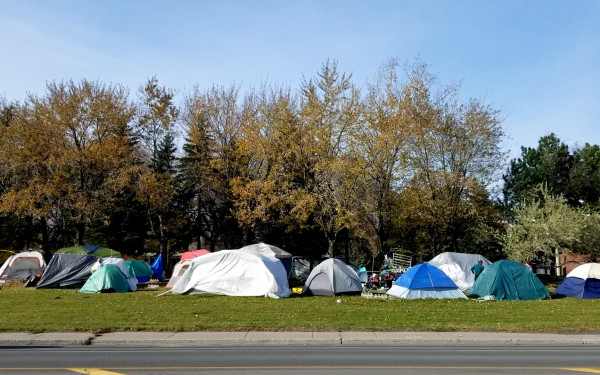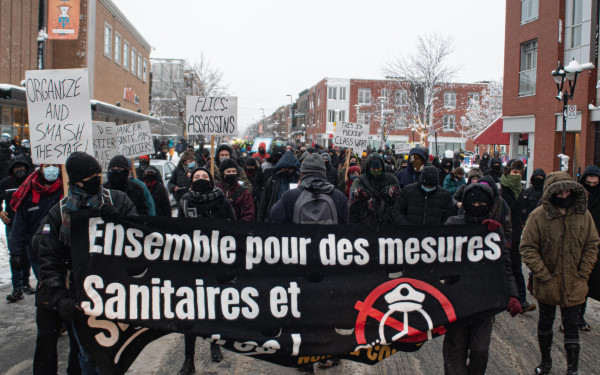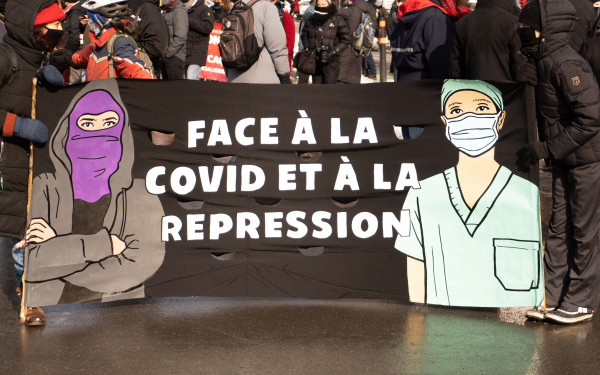Bill 31 will mean more impossible choices for Montreal women
The housing crisis’ exacerbating effects on women who have experienced abuse
Content warning: this article mentions suicide and abuse.
Posters on signposts, recurring protests down major streets, petitions and newscasts reveal the outrage of renters against the Legault regime’s proposed end to lease transfers through Bill 31.
The gravity of the situation cannot be overstated: Quebec now stands at a crossroads, with a 44 per cent increase in homelessness in five years and 500 households left without a lease last moving day. The effects of the housing crisis have cascaded across all Canadian society.
Women, who are at an economic disadvantage, are impacted more than most—with single mothers being 38 per cent more likely to spend more than a third of their income on rent. The result of this is that women having experienced abuse have to make a choice: remain with their abusers on whom they depend for housing, or face homelessness.
The housing crisis is putting women in a double bind, forcing them to make impossible decisions, and exacerbating it will only put more strain on already scarce resources. Like living in any other city, being in Montreal brings you face-to-face with certain social realities.
Advocates and experts say that lease transfers are one of the mechanisms that keep rent controlled, and in addition, the Coalition Avenir Québec’s (CAQ) bill would allow for the selling off of much-needed social housing. Given that Montreal is the only city in Canada with more renters than owners, this is especially dangerous.
Throughout Canada, the story is the same. There is a simultaneous rising of rents and domestic abuse. Women’s shelters have lost $150 million in federal funding and face high staff turnover due to their inability to pay them. One woman, interviewed by the CBC, said, "I can't try to find a job, I can't better myself, I can't be safe if I don't have a home."
What is a woman to do? Some have even attempted suicide to escape this double bind.
This is not hypothetical. The strain of the housing crisis on domestic violence survivors has already been seen as they lose alternatives to living with their abusers. In Montreal, the women’s shelter Chez Doris was forced to shut down temporarily because it could not feed everyone nor did it have the staff to keep up with demand. This drives women to other shelters, putting more strain on them in turn. A conservative estimate places the number of women turned away from Canadian shelters because of a lack of space at 19,000 per month.
Wait lists for social housing in Canada can be a years long wait, and even the (relatively) fortunate women who can find a bed in a shelter may be unable to find a long-term place to go afterwards, leaving them to spend up to a year in the transition homes. At every stage, the housing crisis means abused women are left with no place to go to get away from their abusers.
Stories from women in this situation are stark and display the impossible situations that they face. Women’s experiences include fearing losing custody of their children because they lack a stable home, spending weeks in abusive homes waiting for calls from shelters, or making the decision to return to the men abusing them. Living with their abusers means forfeiting full participation in society, as explored in Kylie Cheung’s book Survivor Injustice, including losing control over their ability to vote, reproductive system, and too often escalating to losing their life.
The CAQ’s policy makes all this worse. By increasing rent, more people will be made unhoused, and this will put even more strain on the shelters that are available now. More women will be unable to leave their abusers. This comes in the aftermath of a rising tide of domestic abuse, just one sordid result of Legault’s COVID-19 policy.
Perhaps all of this is easy for Legault to ignore, but it is impossible for women who have become ensnared in it. If the state fails to provide alternatives, it is complicit in this abuse. Legault should obey the will of Montreal renters and rescind Bill 31 immediately.
This article originally appeared in Volume 44, Issue 7, published November 28, 2023.

